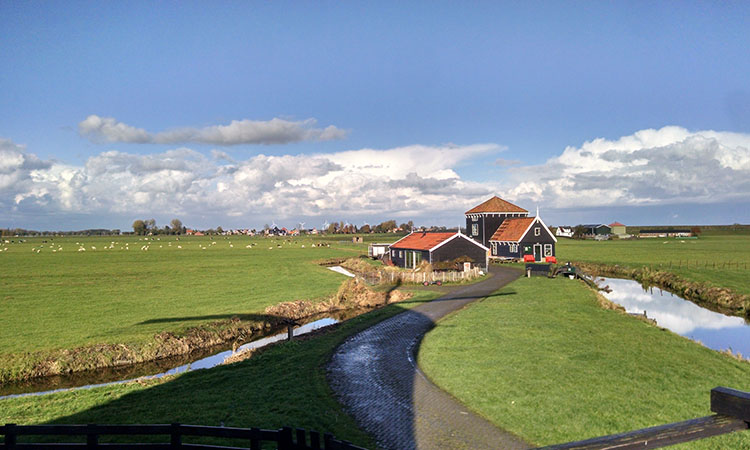Here's the problem: According to a 2012 report by the Organisation for Economic Cooperation and Development, 40 percent of the world's population will be "living in river basins experiencing severe water stress" by the year 2050. While most of these areas will be responding to a reduction of both surface and groundwater, others will be dealing with too much. The Netherlands, which has more than half of its land mass sitting below sea level, is especially vulnerable to flooding, as climate change leads to rising sea levels. What can be done about this?
Here's how the country is working on the problem: Fortunately, the Dutch have created water policies that ensure that communities are safe and resilient despite changing conditions. They have done this by taking the mandate of water management out of central government control and putting it instead in the hands of "Waterschappen" — regional water governments around the country.
In each municipality, the board members who will lead these governments are elected every four years. These organizations then determine what their bioregion's water-management needs are, covering water levels, sewage treatment, infrastructure management, water quality control, and aquatic ecosystem health. Based on the projects that must be completed, they calculate how much they will need to perform what is required of them. The water governments are supervised by the higher government (the province) to ensure that mandates are met, wage increases are fair, and project costs are reasonable. Once their budgets are approved, the public is taxed according to property ownership, with the reasoning that water management is helping to protect land and properties, and those who own more should pay more.
Results:
- By separating water management from the central and regional governments, the Dutch protect their relationship with water from party politics. Their work with water doesn't have to compete for a piece of the pie with education, arts, and health services and isn't at risk if a government implements austerity measures or increases military spending.
- This model has been so successful at helping them have a healthy and flourishing relationship with water that they were deemed "a global reference" by the Organization for Economic Cooperation and Development (OECD) and are advising governments around the world, including Myanmar and Indonesia, which are facing similar challenges.
- This case of localizing power, catering to bioregional needs, and caring for important work has a lot to teach us about our relationships with the commons and the natural world in general, as well as about how to create political processes to meet our complex, critical, and changing needs.
Learn more from:
This case study is adapted from our latest book, "Sharing Cities: Activating the Urban Commons." Get a copy today.










